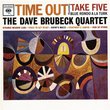| All Artists: Gustav Mahler, Otto Klemperer, Christa Ludwig, New Philharmonia Orchestra, Philharmonia Orchestra and Chorus, Fritz Wunderlich Title: Mahler: Das Lied von der Erde Members Wishing: 2 Total Copies: 0 Label: EMI Classics Original Release Date: 1/1/1965 Re-Release Date: 1/12/1999 Album Type: Original recording remastered Genre: Classical Styles: Opera & Classical Vocal, Historical Periods, Modern, 20th, & 21st Century, Symphonies Number of Discs: 1 SwapaCD Credits: 1 UPCs: 724356694422, 724356694453 |
Search - Gustav Mahler, Otto Klemperer, Christa Ludwig :: Mahler: Das Lied von der Erde
 | Gustav Mahler, Otto Klemperer, Christa Ludwig Mahler: Das Lied von der Erde Genre: Classical
Mahler considered The Song of the Earth his most personal work, and indeed it is one of his greatest and most moving. Its six sections, sung alternately by the mezzo-soprano and tenor, are set to seven poems from The Chine... more » |
Larger Image |
CD DetailsSynopsis
Amazon.com essential recording Mahler considered The Song of the Earth his most personal work, and indeed it is one of his greatest and most moving. Its six sections, sung alternately by the mezzo-soprano and tenor, are set to seven poems from The Chinese Flute, a collection of Chinese lyrics translated into German by Hans Bethge, which echo Mahler's love of nature and contrast the earth's renewal each spring with the transience of human life. Composed after he lost his beloved 4-year-old daughter and was diagnosed with a serious heart ailment, the music encompasses heart-rending anguish and sublime ecstasy; conceived in the shadow of death, it is suffused with a sense of sorrowful, reluctant leave-taking finally transformed into resigned renunciation. The scoring for a large orchestra is masterful and includes many solo passages; melodic, harmonic, and instrumental devices at times create an oriental flavor. Among the work's many recordings, this is certainly one of the best. The orchestra is splendid; its wonderfully transparent sound, together with Klemperer's extremely leisurely, deliberate tempi, allows many apparently brand-new lines and details to come out and gives the second tenor solo a strikingly Chinese character. Moreover, the singers can be clearly heard, and they are incomparable: vocally glorious, musically deeply involved, sensitive to every expressive nuance and subtlety of words and music, they follow Mahler to the heights and depths of emotion, making the performance an overwhelming, unforgettable experience. --Edith Eisler Similarly Requested CDs
|
CD ReviewsOne of THE best Mahler recordings ever! John Dziadecki | Louisville, CO USA | 12/16/2003 (5 out of 5 stars) "Everyone has their own opinion of which Mahler "Erde" is best. The Walter/Ferrier/Patzak/VPO is brilliant and I wouldn't want to be without it. It was my first exposure to "Erde" and recorded beautifuly in magnificent mono. Bernstein/Fischer-Dieskau/King/VPO is fabulous. If you prefer baritone to alto, this is definitely the best. Bernstein knows Mahler and this recording proves it. Both have been remastered in recent years and sound better than ever.I've heard many recordings of this moving work over the years but I find I keep coming back to Klemperer. The Klemperer recording is rich, broad and expansive. The remastered sound is fresh and clear. The VPO is marvelous. Klemperer balances the orchestral forces and the vocalists admirably. Wunderlich and Ludwig pour their soul into the libretto. The music envelopes the listener. This is a transcendant experience. A great recording of the century indeed. Mahler at his finest. Most highly recommended." Deeply moving and inspired Satoshi Akima | Sydney, Australia | 12/23/1999 (5 out of 5 stars) "It is rare for everything to come together as it has on this performance. The interpretation from Klemperer shows him at his finest. The great Mahler pupil shows penetrating insight into the deepest depths of this score which seems to emerge in his hands as possibly Mahler's greatest work. The two inspired vocalists never once fail Klemperer in the realisation of his vision of the work. Wunderlich gives a performance of a lifetime but Ludwig rises to the occassion in the last 'movement'(this is after all a symphony is it not). This is a performance which is almost impossible to stop listening to so convincing and powerful is the musical argument being presented - even for the most jaded Mahlerians it comes across as a revelation. Not only that but as an original recording it is a tour de force for Walter Legge and his recording team, who put most contemporary recordings to utter shame - they just don't make them like that anymore. The huge soundstage, the wonderful front to back depth make many high-tech digital production seem artificial and shallow. And at last these new 24-bit EMI transfers have been able to do full justice to the sound quality dormant in the orginal tapes." Mahler ohne Schmaltz Dennis R. Winter | San Francisco, CA USA | 03/14/2002 (5 out of 5 stars) "I'm 55 now so I calculate I've listened to this performance for 3/4 of my life. When I was 16 or 17, I first bought the Bruno Walter performance with Mildred Miller and Earnst Haefliger and understood that to be the way Mahler should be. It is, in its way. But Mahler's other protege was Klemperer who, in vulger terms, said Walter put too much schmaltz in his Mahler.I was young and romantic and liked the Walter, put the Klemeprer away and lived through the 70s with Donna Summer as the ultimate soprano in my life. In the 80s I pulled out my old lps, almost unlistenable, and got on the CD bandwagon, buying the Walter and Klemperer versions when they were reissued.I was tested one late night listening to this versions on CD: the interments and voices come from an anguished void; the orchestra alternately crushes the singers and lifts them with chanmber-music balance. Klemperer, always a master of tempi, captures the orientalism Mahler probably did not know he was achieving, and Christa Ludwig is ravishing.There is the expected sadness here and the sense of loss, as in Walter's and others' performances, but there is also the strenghth that Klemperer himself indentified as the grand majesty of death."
|

 Track Listings (6) - Disc #1
Track Listings (6) - Disc #1








